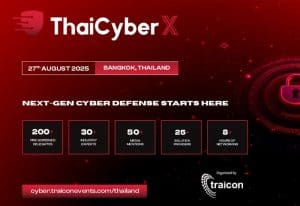COURSES
Bachelor of Cyber Security
OVERVIEW
Gain in-demand skills to protect data and information systems from hackers, with a Bachelor of Cyber Security at Victoria University.
Our cyber-security degree opens many career possibilities. You will study information technology, preparing you for a career in software development or the networking industry. Then you will focus on specialised units in cyber security – gaining the expertise needed to apply for specialised roles.
Learn essential skills in cyber-threat detection and risk management, including:
- cyber security technologies (such as digital signature, public key infrastructure, virtual private networks, firewalls, intrusion detection and data encryption)
- ethical hacking and digital forensic data collection
- vulnerability analysis and control
- enterprise security
- cyber security regulation, policies and laws
- software development
- network design.
You will graduate with an internationally recognised degree, giving you the opportunity to launch your career within or outside Australia.
The VU Block Model lets you study one unit (subject) at a time over four weeks, rather than juggling several units at once.
With its focused timetables and smaller, collaborative classes, the VU Block Model gives you more time to connect with your peers, lecturers and industry partners.
The Model has improved our student results and engagement, and has won multiple international awards for innovation and excellence.
COURSE STRUCTURE
To attain the award of Bachelor of Cyber Security students will be required to complete
- 288 credit points of core units.
Year 1, Semester 1
Web Development and CMS
Unit code: NIT1101 | Credits: 12- Introduction to Programming
- Unit code: NIT1102 | Credits: 12
- Communication and Information Management
- Unit code: NIT1103 | Credits: 12
- Computer Networks
- Unit code: NIT1104 | Credits: 12
Year 1, Semester 2
- Introduction to Database Systems
- Unit code: NIT1201 | Credits: 12
- Operating Systems
- Unit code: NIT1202 | Credits: 12
- Introduction to Project Management
- Unit code: NIT1203 |Credits: 12
- Web Application and Server Management
- Unit code: NIT1204 | Credits: 12
Year 2, Semester 1
- Digital Forensics and Ethical Hacking
- Unit code: NIT2141 | Credits: 12
- Cyber Security Essentials
- Unit code: NIT2102 | Credits: 12
- Server Administration and Management
- Unit code: NIT2122 | Credits: 12
- Introduction to ICT Management
- Unit code: NIT2171 | Credits: 12
Year 2, Semester 2
- Cyber Law Policy and Professional Ethics
- Unit code: NIT2241 | Credits: 12
- Data Privacy and Cyber Physical Systems Security
- Unit code: NIT2242 | Credits: 12
- Big Data
- Unit code: NIT2202 | Credits: 12
- Networking Technologies
- Unit code: NIT2222 | Credits: 12
Year 3, Semester 1
- Enterprise Network Management
- Unit code: NIT3122 | Credits: 12
- Security Operations and Vulnerability Analysis
- Unit code: NIT3141 | Credits: 12
- Applied Project 1
- Unit code: NEF3001 | Credits: 12
- ICT Business Analytics and Data Visualisation
- Unit code: NIT3171 | Credits: 12
Year 3, Semester 2
- Virtualisation in Computing
- Unit code: NIT3222 | Credits: 12
- Data Analytics for Cyber Security
- Unit code: NIT3202 | Credits: 12
- Small IT Business
- Unit code: NIT3274 | Credits: 12
- Applied Project 2
- Unit code: NEF3002 | Credits: 12
We are the first Australian university to use a ‘block’ model of learning, where you study one unit at a time rather than juggling several at once.
Introduced in 2018, the VU Block Model has improved our student results and achievements, and has won awards for innovation and excellence. Initially for first-year students, it now applies to all students studying at our Melbourne campuses.
You’ll study in short bursts, called blocks, of three 2-3 hour face-to-face teaching sessions per week.
Each block focuses on one unit (subject) and is only four weeks long, with up to four days between. Our two semesters have four blocks each, and there are optional blocks over winter and summer where you can catch up on a missed unit.
Some courses have labs and pracs too, and these are generally scheduled on the same days as teaching sessions. There are also workshops where you’ll develop your study skills and prepare for your future career.
Find out more about the VU Block Model.
On successful completion of this course, students will be able to:
| 1. | Integrate and apply a broad and coherent body of knowledge of cybersecurity with depth in selected areas of study from the following areas: network security, digital forensics, ethical hacking, cybersecurity professionals, enterprise network management, cloud security, data analytics for cybersecurity, ICT management for cybersecurity; |
| 2. | Analyse and adapt the latest cybersecurity technologies with intellectual independence, self- learning capabilities and creativity to identify and solve real-world problems with sound decisions and judgement in a broad range of sectors including ICT, government, banking and finance, retail, education, health, media and manufacturing; |
| 3. | Exhibit a range of technical, analytical, managerial, leadership and interpersonal skills; in depth understanding to the codes of ethics and conducts of cybersecurity professions; and |
| 4. | Exhibit a capacity to undertake IT design and development practice in an independent or collaborative environment with a strong industry focus; and the responsibility and accountability as a lifelong learner for their own learning and professional practice. |
FEES & SCHOLARSHIPS
Fee type definitions
The amount you pay for your course depends on whether you’re offered a Commonwealth supported place (CSP) or a full fee-paying place.
Students who enrol in a:
- Commonwealth supported place pay tuition fees that are partly subsidised by the Australian government
- full fee-paying place need to pay the full amount for all enrolled units before census each study period.
In addition to your tuition fees, you may also be charged a Student Services & Amenities Fee (SSAF).
Scholarships & assistance
Apply for a scholarship to help with your study costs.
We can help with fee assistance and advice.
ADMISSIONS
Victoria University is committed to providing a transparent admissions process. Find out more about how to apply for our courses, and our commitment to admissions transparency.
Applicants for this course will need to have met the academic requirements and prerequisites for this course outlined below.
Meeting the minimum admission criteria does not guarantee entry into this course. Past academic performance may be considered.
Admission criteria
The minimum criteria for admission varies depending on your education background. If you’re not sure which criteria applies to you, use the help tool on this page or make an enquiry and we can assist.
|
Importance of ATAR for this course
|
This information is for people who have completed an accredited award at an Australian Registered Training Organisation.
Admission criteria
Completion of an Australian Advanced Diploma or Diploma (or equivalent).
OR:
Completion of the Certificate IV in Tertiary Preparation (or equivalent)
Special admission programs
Our special admission programs cover a range of access and equity schemes that allow applicants from participating schools or disadvantaged social, economic or cultural environments to receive additional consideration. These include:
- Special Entry Access Scheme (SEAS) for VTAC applicants.
- Special consideration for direct applicants.
This information is for people whose highest level of study since leaving secondary education is a higher education course.
Admission criteria
Full or partial completion of an Australian Higher Education award (or equivalent).
OR:
Completion of two units of Higher Education studies, at least one must be in Mathematics.
OR:
Completion of a bridging or enabling course eg. Foundation course or equivalent.
Special admission programs
Our special admission programs cover a range of access and equity schemes that allow applicants from participating schools or disadvantaged social, economic or cultural environments to receive additional consideration. These include:
- Special Entry Access Scheme (SEAS) for VTAC applicants.
- Special consideration for direct applicants.
This information is for applicants who left secondary school more than two years ago and who have not undertaken VET or higher education study since then.
Admission criteria
Five years (minimum) work/life experience in Information Technology or similar.
OR:
Completion of an Australian Senior Secondary Certificate more than two years ago.
PLUS:
Units 3 and 4: a study score of at least 25 in English (EAL) or 20 in any other English (or equivalent).
AND:
A study score of at least 20 in Mathematics (any) (or equivalent).
Special admission programs
Our special admission programs cover a range of access and equity schemes that allow applicants from participating schools or disadvantaged social, economic or cultural environments to receive additional consideration. These include:
- Special Entry Access Scheme (SEAS) for VTAC applicants.
- Special consideration for direct applicants.
ENQUIRE NOW
SHARE:

About the Provider






